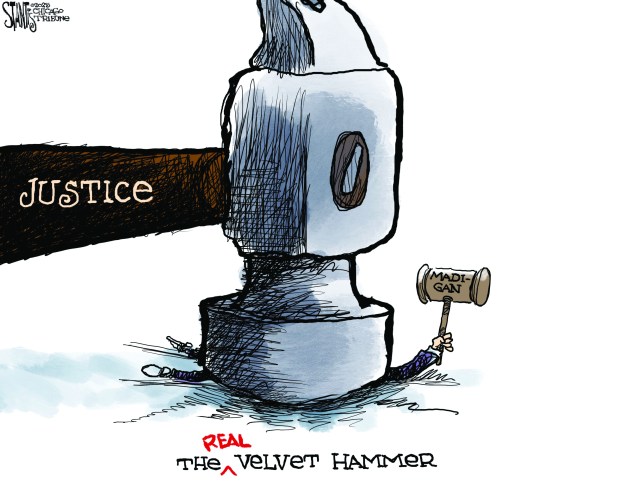The word “quantum” is moving beyond physics labs and Marvel movies. Today, the term represents our ability to develop powerful tools that will revolutionize industries from health care to finance and have the potential to reshape our global economy. And that revolution is happening right here in Illinois.
Last week, leaders from the public, private and nonprofit sectors gathered to announce the creation of the Illinois Quantum & Microelectronics Park in South Chicago anchored by an investment from PsiQuantum, the state of Illinois and up to $140 million from the federal government through the Defense Advanced Research Projects Agency. It is estimated that the campus will have a $20 billion economic impact over the next decade and create thousands of jobs.
This announcement further builds on Illinois’ lead in quantum technology and joins a number of other local announcements in the field, including Gov. J.B. Pritzker’s allocation of $500 million in the state budget to boost quantum computing.
But let’s take a step back to understand what quantum technology means in the first place. Quantum technology harnesses the principles of quantum mechanics — the study of matter and energy at the smallest scales — to develop powerful new tools and applications. Quantum computers will exponentially accelerate our ability to solve complex problems, such as optimizing travel paths and discovering new materials. Having an edge in quantum technology is also critical to the national security interests of the United States. The impact of quantum technology may fundamentally change how we live our lives, communicate with each other and work.
The site selection for the quantum campus is symbolic. Located in South Chicago near the mouth of the Calumet River, the location was once home to U.S. Steel, which at its peak was a symbol of American industrial power. The world’s first company to be valued at more than $1 billion, U.S. Steel created the physical backbone of modern-day business by forging steel for some of the most iconic buildings across our country, from Chicago’s Sears Tower and John Hancock Center to the San Francisco-Oakland Bay Bridge and the United Nations Building in New York City. Now, the next generation of American digital and communications infrastructure will be powered by cutting-edge innovation at the same site.
Turning a 128-acre once-prosperous site that has been vacant for more than 30 years into the most high-tech campus in America will be a tremendous achievement.
More than just symbolism, the location was also chosen for the state’s ability to source talent across the region. Illinois is home to some of the top engineering universities in the country. For example, the engineering workforce graduating from the University of Illinois at Urbana-Champaign in a given year is greater than that of the Massachusetts Institute of Technology, the California Institute of Technology and Stanford University combined. The University of Chicago, which offers pioneering degree programs in quantum engineering, will push scientific boundaries and produce top talent along with the U. of I., Northwestern, Argonne and Fermi National Labs and other strong Midwestern institutions.
The implications of the quantum technology campus go beyond its physical location and have the ability to positively impact businesses across Chicago. Duality, the first quantum accelerator in the country, which is based here in Chicago, will continue building upon its successful track record by hosting expanded cohorts of startups that are commercializing quantum innovations, achieving technological breakthroughs and attracting more than $20 million in investment. These startups will be able to capitalize on the infrastructure of the quantum campus.
Additionally, the Chicago Quantum Exchange, which pulls together partners from across the region and beyond, will have more resources to continue building relationships. Major corporations from the region, which already hosts more than 50 Fortune 500 headquarters, will be able to plug in to local talent and innovative startups to solve customer problems with new quantum product and service offerings. The circle of innovation — talent, capital, universities, infrastructure and industry — will position Illinois to build on, and benefit from, the quantum industry.
The development of a robust ecosystem in technology has happened in other parts of the country. Silicon Valley and Boston didn’t become what they are today by accident; it was these same ingredients that enabled their thriving economies. Led by great research from universities, entrepreneurs advanced new technologies into industry-defining companies. Anchor institutions encouraged startups to stay local by supporting them with talent and connections for financing. As these companies grew, they attracted more investors. Add in major support from the government, national labs and the establishment of industrial parks, and you have the prime conditions for innovation — with many parallels to what is being created in the Chicago area.
Thanks to the support of government and universities, as well as major investment from the private sector, the potential for Illinois to be a dominant global player in quantum is clear — entrepreneurs working on quantum technology can attract top talent, investors, customers and partners right here in Chicago.
Leaders in our ecosystem must now do everything possible to turn the quantum campus announcement into a ribbon cutting so we can harness the economic potential of the coming quantum revolution.
Samir Mayekar is managing director of the Polsky Center for Entrepreneurship and Innovation at the University of Chicago. Nadya Mason is dean of the Pritzker School of Molecular Engineering and the Robert J. Zimmer professor of molecular engineering at the University of Chicago.
Submit a letter, of no more than 400 words, to the editor here or email letters@chicagotribune.com.



